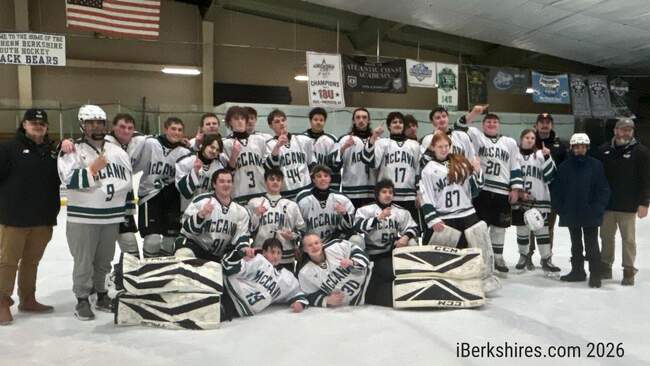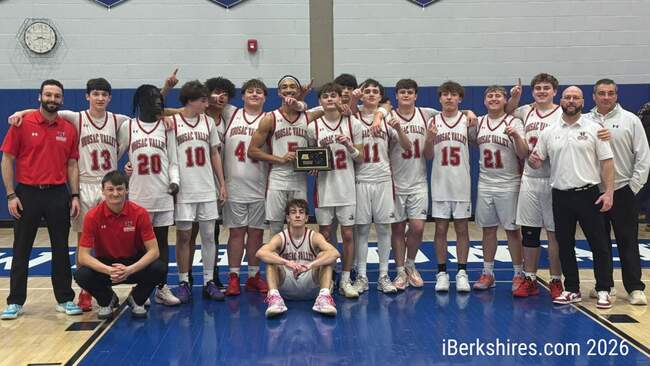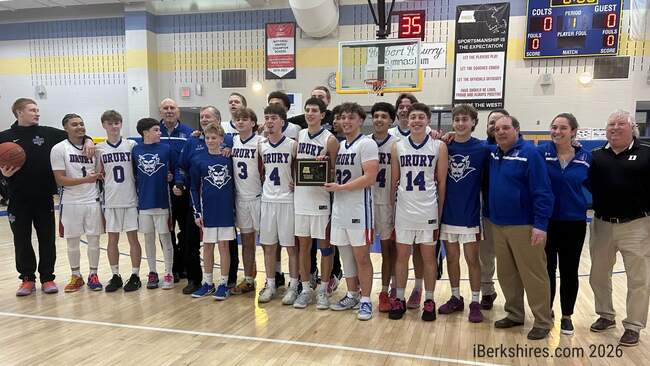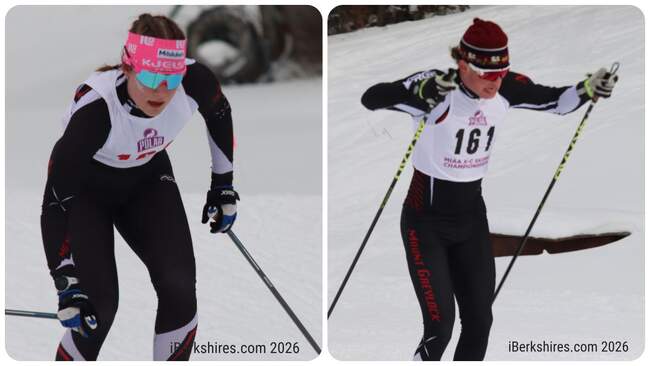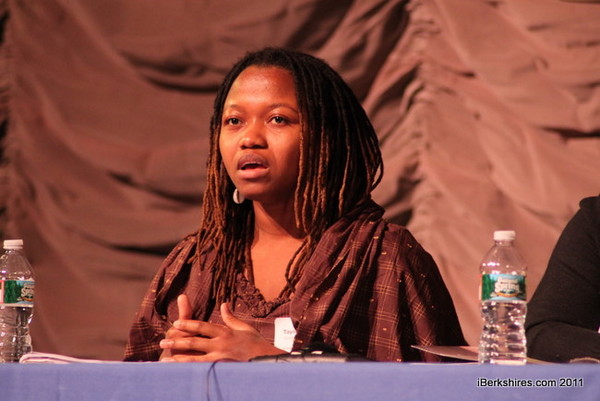
Women Right the World: The Rest of the Story
GREAT BARRINGTON, Mass. — Has anyone noticed that the hum of women educators, business owners, mothers, students and artists has gotten pretty loud in the Berkshires this month? I know I can feel it, still.
With the International Women's Day conference at Bard College at Simon's Rock and the monthlong Berkshire Festival of Women Writers, you'd have to be living under a rock not to notice all the hustle and bustle and energy surging through the community. I attended the conference held on Saturday and while I was able to write a story covering some highlights of the event, there is much, much more that needs to be said, some of it encouraging and some of it alarming.
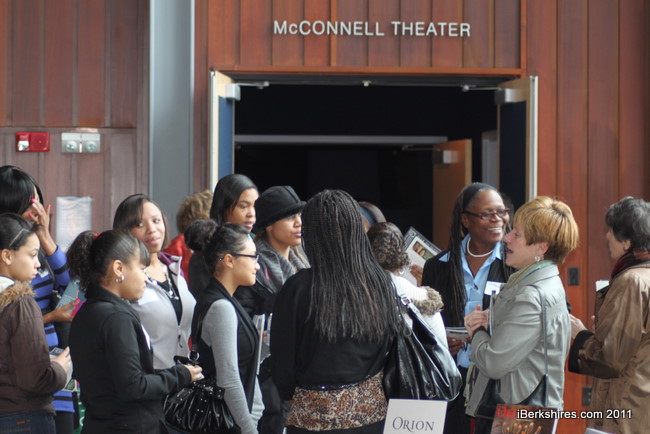
What I did not mention was that sitting next to Dongala was Omotayo Jolaosho, a Nigerian native who is now a doctoral candidate in the department of anthropology at Rutgers University. Jolaosho, who received her bachelor's at Simon's Rock, said it was here in the hills and farm country that she found her voice of resistance. Her family back home did not rejoice in her discovery.
"Before writing, there was the practice of reading. I realized that I could use words to reflect on my own condition," she said. "Reading was a space of unbridled truth and I wanted to further such a space. So for my thesis, I spoke my truth. I told about African women and about the man who I have watched abuse my mother. But I didn't intend for it to be read. When I went back home my brother stole my thesis and showed it to my mother and her husband. They were very upset. They even wanted me to get it back from the library here at Simon's Rock. There is a great sacrifice in breaching silence."
In fact, many women at the conference came forth to make sacrifices and break open taboos long written down. Local dance choreographer Anni Crofut dared to create "The Queen Years," a five-part dance piece focusing on the period of a woman's life from her 50s through her 60s. And Lauren Paul, Megan Reisel and Kim Kaufman, all over 50, dared to dance the parts. Move over "Black Swan."
Most daring, and most alarming, was Sandra Steingraber's warning to the attendees and to her readers and to anyone who will listen. Amidst the euphoria of empowerment and sisterhood, Steingraber dropped the bomb that we all know about, but refuse to believe will explode in our lifetime.
"There has been a 40 percent decline in the world's plankton. Plankton provides one half of the oxygen we breath," she said. "Imagine an ecological metric stock market. We all pay attention to dividends, rising and falling points, even if we don't have stocks. But when it comes to the environment, we are often asking ourselves, 'How come I didn't know that?'"
This exact question popped up in my own, supposedly informed, head, when Steingraber dove into the subject of hydrofracking, which is basically drilling for natural gas that is trapped in shale. The process of drilling involves mixing a large volume of water with sand and chemicals (including potassium-chloride) and drilling roughly 500 feet into the earth to break apart the shale and release the natural gases trapped inside. The effects of this drilling, according to Steingraber, is ultimately devastating to drinking water and to the environment.
"This is all happening below our feet," she said. "There are 96,000 wells planned for New York State. There is a moratorium on hydrofracking but that runs out in May. Then what? We need to be a force of resistance for injustice."
Enough said. If we don't get moving there will be no rock to live under.




